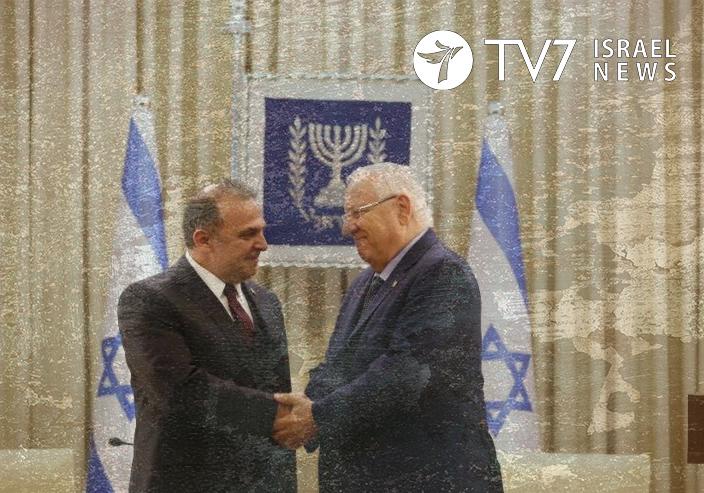Turkish ambassador to Israel Kemal Okem, handed his credentials to Israeli President Reuven Rivlin, in another step toward restoring diplomatic ties between the two regional powers.
President Rivlin said after an official welcoming ceremony for the Turkish diplomat in Jerusalem that the friendship between the two countries goes back in history and voiced hope that the reconciliation will open a new and promising page in the bilateral relations. “Our friendship goes back in history and I hope that the reconciliation and the appointment of new ambassadors will open a new and promising page in this relationship. We must work together to promote our economic relations, trade and energy cooperation as a real engine of growth for our friendship,” Rivlin said.
The newly appointed Turkish ambassador to the Jewish state stressed that both Turkey and Israel face “a new beginning” and took the opportunity to voice hope that the Palestinian people will also benefit from the cooperation between the two countries. “Indeed, Mr. President, this is a new beginning in our bilateral relations and in our efforts, join efforts in this region in which we have close ties, historical ties. Our region offers more than its share of challenges but also of big opportunities. As before, Turkey and Israel will work together to make sure that these opportunities are fully utilized and challenges are met.” Adding, “It is hope that this cooperation will also work for the benefit of other nations, particularly to the Palestinian Authority as well. I thank for the cooperation extended by the Israeli authorities for the Turkish aid toward Gaza and the Palestinian areas,” Turkish Ambassador to Israel Kemal Okem said.
Israeli-Turkish relations broke down in 2010 when 10 Turkish pro-Palestinian activists were killed by Israeli commandos enforcing a naval blockade of the Hamas-run Gaza Strip. Yet after intensive negotiations, the two countries reached an agreement to normalize ties in June earlier this year – a rapprochement driven by the prospect of lucrative Mediterranean gas deals as well as mutual fears over security risks in the Middle East.
